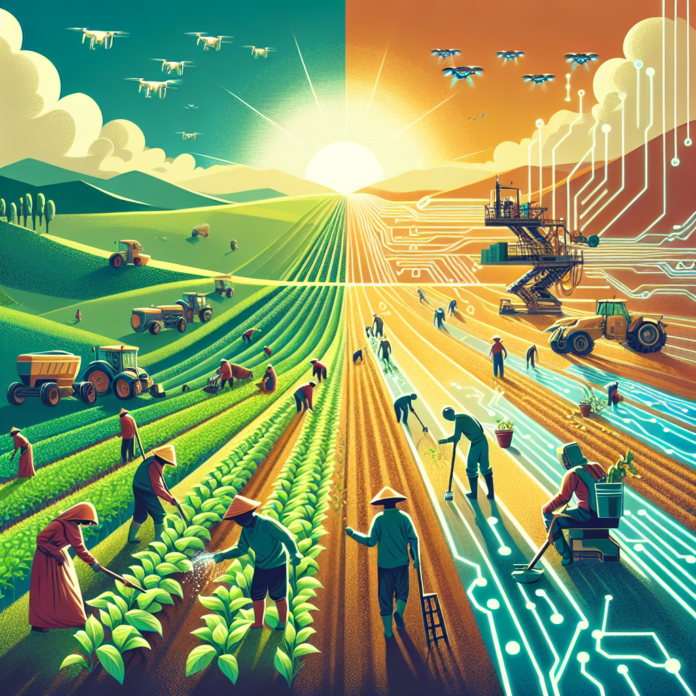The Future of Farming with AI Innovations
The Future of Farming: How AI is Transforming Agriculture
As the world faces increasing challenges such as climate change, population growth, and food security, the agriculture sector is turning to innovative technologies to enhance productivity and sustainability. Artificial Intelligence (AI) is at the forefront of this agricultural revolution, providing farmers with tools and insights that were previously unimaginable.
Precision Agriculture
AI-driven precision agriculture involves the use of data analytics and machine learning to optimize farming practices. By analyzing vast amounts of data collected from various sources, including satellite imagery, sensors, and weather forecasts, farmers can make informed decisions about planting, watering, and harvesting. This targeted approach reduces waste, minimizes environmental impact, and maximizes crop yields.
Automated Machinery and Robotics
The integration of AI with robotics is reshaping traditional farming methods. Autonomous tractors, drones, and robotic harvesters are being deployed to carry out tasks such as planting seeds, applying fertilizers, and harvesting crops. These machines operate with precision and efficiency, allowing farmers to cover larger areas with less labor while reducing the physical toll on human workers.
Data-Driven Decision Making
AI systems can analyze historical data and real-time information to provide predictive analytics for crop management. Farmers can receive alerts about potential pest infestations, plant diseases, or adverse weather conditions, allowing them to take proactive measures. This data-driven approach not only enhances productivity but also promotes sustainable practices by reducing the need for chemical interventions.
Supply Chain Optimization
AI is also playing a crucial role in streamlining the agricultural supply chain. By forecasting demand and optimizing logistics, AI helps farmers ensure that their products reach the market efficiently. This minimizes food waste and maximizes profits. Additionally, AI can assist in identifying market trends, enabling farmers to adjust their production strategies accordingly.
Enhancing Sustainability
Sustainability is a critical concern in modern agriculture, and AI is helping to address this issue. By optimizing resource use—such as water, fertilizers, and pesticides—farmers can reduce their environmental footprint. AI algorithms can also aid in crop rotation and soil management practices, promoting biodiversity and soil health.
Challenges and Future Outlook
Despite the numerous benefits, the adoption of AI in agriculture does come with challenges. Issues such as the high initial costs of technology, the need for farmer training, and data privacy concerns must be addressed. However, as technology continues to advance and become more accessible, the future of farming looks promising.
The ongoing integration of AI into agriculture is poised to revolutionize the industry by enhancing productivity, promoting sustainability, and ensuring food security for a growing global population. As these technologies evolve, they will play an increasingly vital role in shaping the agricultural landscape of tomorrow.


